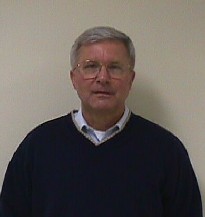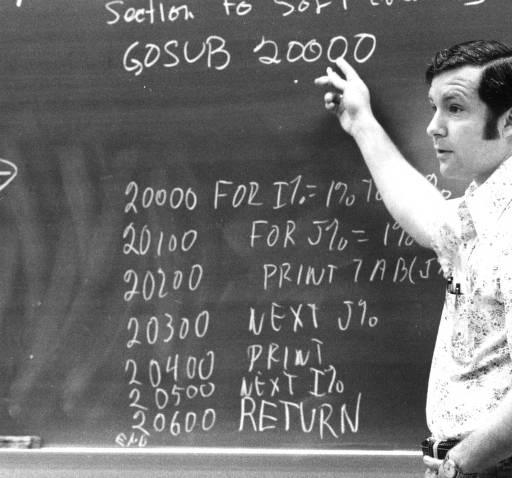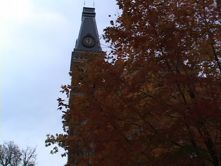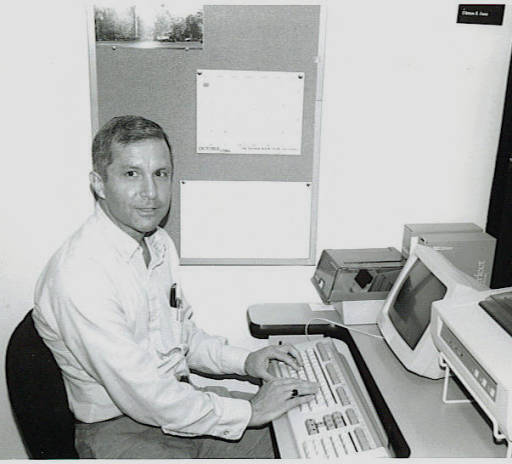Prof. Carl Singer '66 Receives Exemplary Teaching Award
December 17, 2001
 December 17, 2001, Greencastle, Ind. - Carl P. Singer, professor and chair of the department of computer science at DePauw University, is the recipient of the 2001-2002 Exemplary Teaching Award, which is given jointly by DePauw and the General Board of Higher Education of the United Methodist Church.
December 17, 2001, Greencastle, Ind. - Carl P. Singer, professor and chair of the department of computer science at DePauw University, is the recipient of the 2001-2002 Exemplary Teaching Award, which is given jointly by DePauw and the General Board of Higher Education of the United Methodist Church.
"His students are effusive in their admiration for his inspiring teaching, noting that he is always available to answer questions and to provide feedback that facilitates their learning," said Neal B. Abraham, vice president for academic affairs and dean of the faculty. "Many attribute their continued interest and work in computer science to his encouragement during their first course with him."
Dr. Singer earned his B.S. in mathematics and secondary education at Adrian College in 1964, his M.A. in mathematics at DePauw in 1966, and his Ph.D. in mathematics at the University of Cincinnati in 1973. He came to DePauw in 1973 as assistant professor of mathematics and director of computing. On his first sabbatical, Singer returned to school as a full-time student on his first sabbatical and completed additional courses thereafter, earning an M.S. in computer science at Purdue University in 1982. From 1985-2000, Singer served as director of academic computing. He was promoted to associate professor of mathematics in 1978 and to professor of mathematics in 1987; in 1993 he became professor of computer science.
in mathematics at the University of Cincinnati in 1973. He came to DePauw in 1973 as assistant professor of mathematics and director of computing. On his first sabbatical, Singer returned to school as a full-time student on his first sabbatical and completed additional courses thereafter, earning an M.S. in computer science at Purdue University in 1982. From 1985-2000, Singer served as director of academic computing. He was promoted to associate professor of mathematics in 1978 and to professor of mathematics in 1987; in 1993 he became professor of computer science.
In 1997-98 Dr. Singer provided leadership in designing the Faculty Instructional Technology Support Program (FITS), of which he served as the inaugural director for 2000-01 and to which he continues to give time and energy to support projects of faculty colleagues. Singer also helped to develop the computer science curriculum at DePauw and developed the introductory text, in collaboration conjunction with a colleague at Wabash College. The result was "Problems, Algorithms, Programs: A Laboratory Centered Introduction to Computer Science Using Turbo Pascal" (with D. Maharry, 1993, with revisions each year thereafter). This text was followed by "More Problems, Algorithms, Programs: Fundamental Concepts in Computer Science", (with Gloria Townsend, first issued in 1998 for use in Computer Science II); and by "Problems, Algorithms,  Programs: A Laboratory Centered Introduction to Computer Science Using C++"(issued in 2001).
Programs: A Laboratory Centered Introduction to Computer Science Using C++"(issued in 2001).
In the introduction to his current laboratory manual, Singer states, "The laboratories in this book are designed to give you an opportunity to learn by doing, mimicking, making mistakes, and doing again. You also are encouraged to work with others while going through the steps for the laboratories. If you have not used this approach to learning before, don't be discouraged if it seems to take a little more time. You are much more likely to develop a better understanding of the material."
According to Abraham, Dr. Singer "constantly asks about the goals for the course, what students are expected to learn, and how technology will help them learn. Never satisfied, he revises and adapts each course each time he teaches it, incorporating new programming languages, new exercises and assignments, and new teaching techniques. He has experimented with a variety of teaching styles and strategies,  always seeking greater student engagement through open-ended projects and team-oriented assignments."
always seeking greater student engagement through open-ended projects and team-oriented assignments."
The department of computer science at DePauw was formally instituted in 1993, and Singer has served as chair for the past six years. Today, it holds the distinction of being the largest computer science program in a liberal arts college in the United States in terms of graduating majors.
Previous recipients of the Exemplary Teaching Award are Tom Chiarella, Andrea Sununu, Valarie Ziegler, Craig Paré, John Dittmer and Terri Bonebright. "Together they provide inspiration to all of us as models of DePauw's enduring commitment to the pre-eminent importance of creative and effective teaching by its faculty members," Dr. Abraham said.
Back